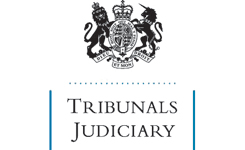|
Notes:
|
Reported as [2011] AACR 11
Criminal injuries compensation – reduction and withholding of awards – conduct of applicant – when behaviour causing or contributing to the incident makes it inappropriate to award full compensation
The claimant made a claim under the Criminal Injuries Compensation Scheme 2001, stating that she had suffered an unprovoked assault in a named cinema and had reported the assault to a police officer. The police description of the incident recounted that, before the film had started, she began to blow a whistle if people talked or used a mobile telephone. Under paragraph 13(d) of the Scheme, a claims officer of the Criminal Injuries Compensation Authority (CICA) may withhold or reduce an award where he considers that the conduct of the claimant before, during or after the incident giving rise to the application makes it inappropriate that a full award or any award at all be made. A claims officer made a decision that an award could not be made under the Scheme, because it would be inappropriate in view of the information from the police showing that the claimant’s conduct had provoked the incident. The claimant applied for a review of that decision, saying that the police description bore no relationship to the true sequence of events. On review the claims officer said that there was conflicting evidence, but not enough to be satisfied that the claimant’s conduct did not contribute to what happened, so that a full or reduced award of compensation would be inappropriate under paragraph 13(d). The claimant appealed. The tribunal disallowed the appeal on the basis that it was satisfied that the weight of the available evidence was that the applicant had acted in an unusual, unreasonable and provocative manner, that it was her behaviour that had brought about the incident in question and that “accordingly” it was unable to make any award. The claimant applied to the Upper Tribunal for judicial review. When giving permission to appeal, the Chamber President of the Administrative Appeals Chamber (AAC), “without limiting the grounds that may arise”, drew attention to a number of points, including whether the tribunal had failed to ask the right question. It was part of CICA’s submission that that ground should not be considered, as it had not formed an express part of the case made for the claimant.
Held, allowing the application and quashing the decision of the First-tier Tribunal, that:
1. the mere identification of a number of grounds on which permission is granted or on which submissions are directed, without a formal limitation of the giving of permission to those specific grounds, does not exclude the consideration of any issue that is relevant to the question of whether one of the orders specified in section 15(1) of the Tribunals, Courts and Enforcement Act 2007 should be made and, in order to ensure that the correct result in law is reached, issues may be raised by the AAC itself at any stage, subject always to the principles of natural justice (paragraph 15);
2. the tribunal’s use of the word “accordingly” indicated that it regarded the decisive test as whether the claimant’s behaviour had brought about the incident in question, which was not to ask the question in the terms of paragraph 13(d), but to ask a different question that was apparently regarded as conclusive and so to fetter its very wide discretion (paragraph 17);
3. R v Criminal Injuries Compensation Board, ex parte Comerford, 19 June 1980, is authority that the occurrence of unforeseeably severe consequences of violence is irrelevant to paragraph 13(d), but it is no authority at all on a situation where a claimant’s conduct is provocative not of the very blow that followed, but of no violent reaction at all or of a reaction of a lower degree of violence than actually occurred and the tribunal and CICA are entitled to take into account when assessing appropriateness that some degree of violent reaction could have been anticipated, but the actual reaction (as opposed to the consequences of that reaction) was out of proportion to what was expected (paragraphs 27 to 30);
4. it cannot be said that applying that approach must have produced the same outcome as that reached by the tribunal asking itself too restricted a question, as there was plainly an argument for the claimant that no matter how annoying, disruptive and provocative the actions that the tribunal found she carried out were, they could not reasonably have been expected to result in a reaction of violence (paragraph 31);
5. in the light of the importance now given to the adequacy of reasons as an element of a fair trial, nothing in R v Criminal Injuries Compensation Board, ex parte Cook [1996] 1 WLR 1037 can be allowed to take anything away from the standard of reasons required of a First-tier Tribunal and the tribunal’s reasons here did not come up to the standard required by those general principles as re-stated in South Bucks District Council v Porter (No 2) [2004] UKHL 33; [2004] 1 WLR 1953, as there needed to be some further explanation of why the nature of the claimant’s conduct made it inappropriate for something less than a full award to be made (paragraph 35);
6. if a tribunal wishes to rely on the way similar cases have been dealt with in the past as part of the explanation for a conclusion on inappropriateness (not as a substitute for such a conclusion) it needs to say so expressly (paragraph 37).
The judge remitted the case to a differently constituted First-tier Tribunal within the Social Entitlement Chamber for reconsideration.
|
